Ultimate Rust Bundle
For only $499 you will have access to all our Rust courses along with any new content released for them during your membership year.
Get Started Now Free PreviewFor only $499 you will have access to all our Rust courses along with any new content released for them during your membership year.
Get Started Now Free Preview

Hands-on training taking you from “Hello World” to building fast, safe and productive servers. Learn Rust’s memory, safety, concurrency and asynchronous models and create useful applications that can serve as templates for immediate productivity. This course covers beginner and some intermediate to advanced topics.
You don’t need prior experience with Rust. You do need: a text editor, ideally one that supports Rust Analyzer (Visual Studio Code is a good start), and Rust installed from ( https://rustup.rs/ ). You’ll get the most out of this class if you have prior programming experience in other languages - variables, basic control flow (for loops, etc.) and with the command-line.
See course info for more detailed requirements.$399
$499
Beginner - Advanced
35+ Hrs
Contact Advisor
All of our bundles are for a one year subscription.

Take your programming skills to the next level and join the ranks of Ardan Labs Certified developers. Verify your technical proficiency and unlock new career opportunities with our Rust certification exam.
90 Mins
100 Questions
Online Proctored
Purchase our training bundle and save 45% on all of the courses.
Enroll NowPurchase courses individualy and focus on only the training you need.
*Prices vary per course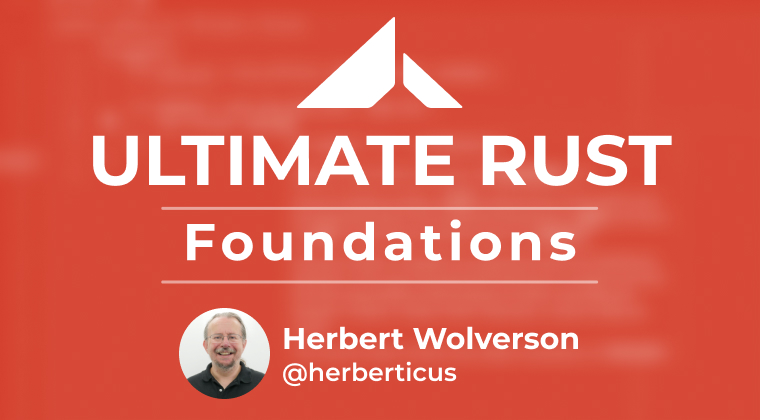
This comprehensive course is designed to take you from zero to hero in Rust, equipping you with the skills to excel in basic development and web service creation. Through practical, hands-on training, you'll establish a robust understanding of Rust fundamentals
with Herbert WolversonShow Details
Ultimate Rust: This course covers many best practices to help you with integrate Rust into your workflow, and let Rust’s tooling work for you. It includes formatting, linting, dependencies, vulnerabilities, code style and general development advice..
This course is part of the Ultimate Rust track. Not sold separately.
Note: All of our bundles are for a one-year subscription.
At the end of the subscription period, your membership does not automatically renew.
Purchase a one year subscription to access all of the courses in this bundle on our education platform.
IND BUNDLE Purchase BundlePurchase a one year subscription to access this course on our education platform.
Purchase for $400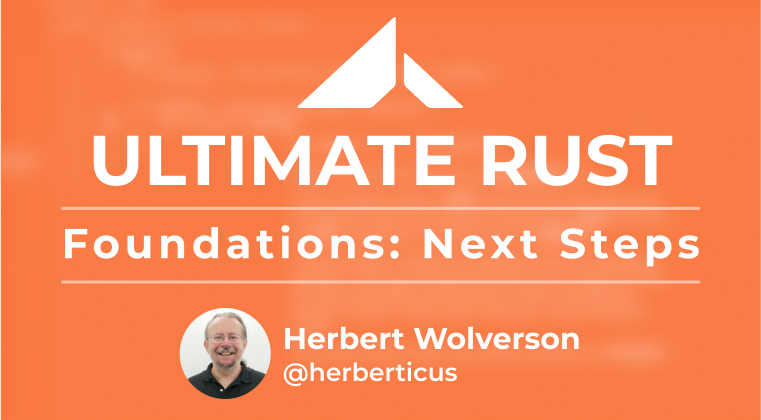
This course offers the next steps not covered in Ultimate Rust: Foundations that expands on and optimize what you've already built.
with Herbert WolversonShow Details
This course offers the next steps not covered in Ultimate Rust: Foundations that expands on and optimizes what you’ve already built.
Note: All of our bundles are for a one-year subscription.
At the end of the subscription period, your membership does not automatically renew.
Purchase a one year subscription to access all of the courses in this bundle on our education platform.
IND BUNDLE Purchase BundlePurchase a one year subscription to access this course on our education platform.
Purchase for $39.99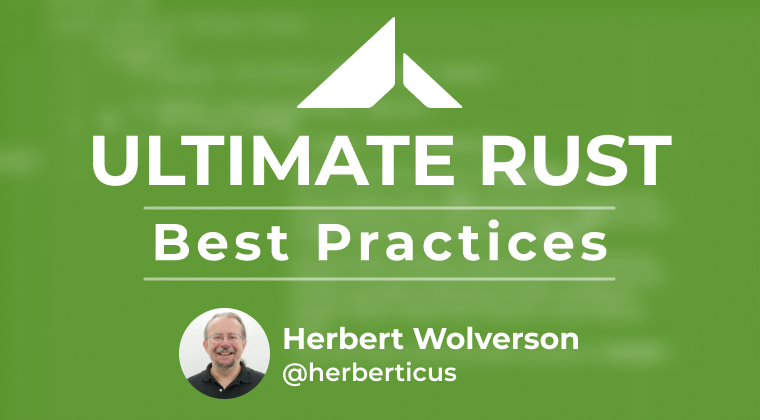
This course covers many best practices to help you with integrate Rust into your workflow, and let Rust’s tooling work for you. It includes formatting, linting, dependencies, vulnerabilities, code style and general development advice.
with Herbert WolversonShow Details
This course covers many best practices to help you with integrate Rust into your workflow, and let Rust’s tooling work for you. It includes formatting, linting, dependencies, vulnerabilities, code style and general development advice.
Note: All of our bundles are for a one-year subscription.
At the end of the subscription period, your membership does not automatically renew.
Purchase a one year subscription to access all of the courses in this bundle on our education platform.
IND BUNDLE Purchase BundlePurchase a one year subscription to access this course on our education platform.
Purchase for $39.99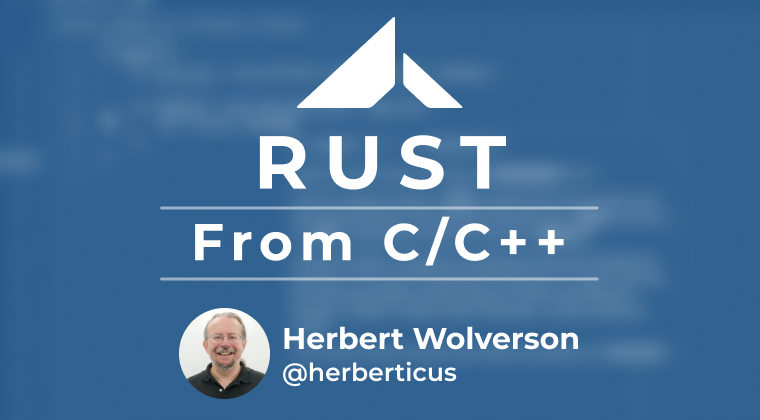
This course bridges the transition from C and C++ to Rust by highlighting their similarities and differences. Exploring Rust's native compilation, memory management, and advanced features, you'll compare and contrast key concepts like types, control flow, and data structures in this class. Delve into Rust's strengths in memory safety and concurrency, alongside its unified tool, Cargo, streamlining development. Additionally, learn how Rust facilitates interoperability with C and C++ through Foreign Function Interface (FFI).
with Herbert WolversonShow Details
This course bridges the transition from C and C++ to Rust by highlighting their similarities and differences. Exploring Rust’s native compilation, memory management, and advanced features, you’ll compare and contrast key concepts like types, control flow, and data structures in this class. Delve into Rust’s strengths in memory safety and concurrency, alongside its unified tool, Cargo, streamlining development. Additionally, learn how Rust facilitates interoperability with C and C++ through Foreign Function Interface (FFI).
This course is part of the Ultimate Rust track. Not sold separately.
Note: All of our bundles are for a one-year subscription.
At the end of the subscription period, your membership does not automatically renew.
Purchase a one year subscription to access all of the courses in this bundle on our education platform.
IND BUNDLE Purchase BundlePurchase a one year subscription to access this course on our education platform.
Purchase for $400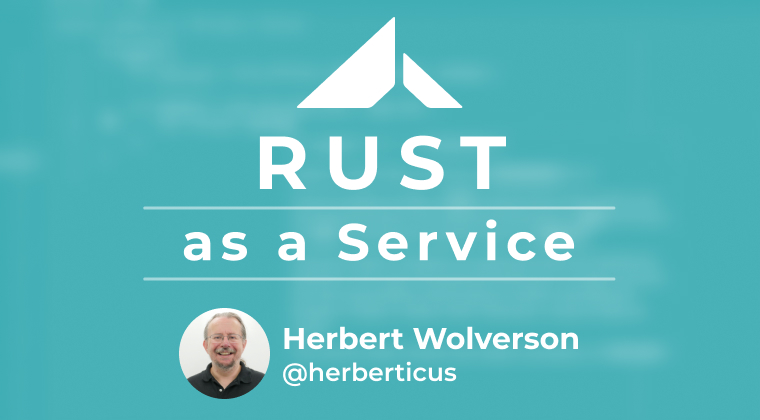
This course teaches integrating Rust into service-oriented architectures, covering REST server development, data handling, error management, and modularization. You'll learn tracing, automated OpenAPI documentation, configuration for different environments, and alternative connectivity mechanisms like gRPC and WebSockets. Explore deploying a test service in a containerized environment, along with insights into service design, deployment strategies, and scaling. This prepares you for deploying high-performance Rust services in enterprise environments.
with Herbert WolversonShow Details
This course teaches integrating Rust into service-oriented architectures, covering REST server development, data handling, error management, and modularization. You’ll learn tracing, automated OpenAPI documentation, configuration for different environments, and alternative connectivity mechanisms like gRPC and WebSockets. Explore deploying a test service in a containerized environment, along with insights into service design, deployment strategies, and scaling. This prepares you for deploying high-performance Rust services in enterprise environments.
This course is part of the Ultimate Rust track. Not sold separately.
Note: All of our bundles are for a one-year subscription.
At the end of the subscription period, your membership does not automatically renew.
Purchase a one year subscription to access all of the courses in this bundle on our education platform.
IND BUNDLE Purchase BundlePurchase a one year subscription to access this course on our education platform.
Purchase for $400